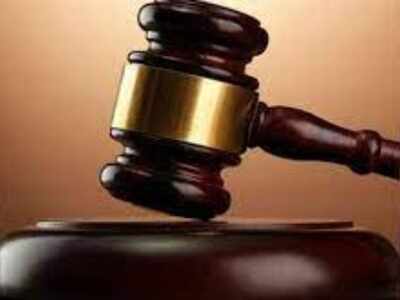Top Searches
- News
- India News
- Criminal justice system not at level where accused’s name can be redacted: HC
Criminal justice system not at level where accused’s name can be redacted: HC

Representative image
MADURAI: Dismissing a plea moved by a man seeking to redact his name from a judgment of the Madras high court that acquitted him in a criminal case, the HC on Tuesday observed that “this court honestly feels that our criminal justice system is yet to reach such standards where courts can venture to pass orders for redaction of name of an accused person on certain objective criteria prescribed by rules or regulations”.
“This court must take judicial notice of the fact that the criminal justice system that is prevalent in this country is far from satisfactory. In various cases involving heinous crimes, this court helplessly passes orders and judgments of acquittal due to slipshod investigation, dishonest witnesses and lack of an effective witness protection system,” observed Justice N Anand Venkatesh.
The judge observed that though this court came to a prima facie conclusion that an accused person is entitled to have his name redacted from the judgments or orders and more particularly the ones that are available in the public domain and which are accessible through search engines. However, on a deeper review of the issue, this court has taken cognisance of the fact that the same is not as simple and straight as it sounded. This court felt that there may be ramifications if such a generalised order is passed and directions are issued.
The judge observed that during the course of deliberation, the attention of the court was drawn to various foreign judgments and also the relevant regulations and enactments of those countries which specifically provides for expunction, expungement, redaction or destruction of criminal records.
“No such rule or regulation exists in India for the present. In the absence of any statutory backing, this court cannot undertake the exercise of issuing directions when no judicially manageable standards exist in the first place. There must be a proper policy formulated in this regard by means of specific rules. In other words, some basic criteria or parameters must be fixed, failing which, such an exercise will lead to utter confusion,” observed the judge.
The judge observed that it will be more appropriate to await the enactment of the Data Protection Act and Rules thereunder, which may provide an objective criterion while dealing with the plea of redaction of names of accused persons who are acquitted from criminal proceedings. “If such uniform standards are not followed across the country, the constitutional courts will be riding an unruly horse which will prove to be counterproductive to the existing system,” observed the judge.
“This court must take judicial notice of the fact that the criminal justice system that is prevalent in this country is far from satisfactory. In various cases involving heinous crimes, this court helplessly passes orders and judgments of acquittal due to slipshod investigation, dishonest witnesses and lack of an effective witness protection system,” observed Justice N Anand Venkatesh.
The judge observed that though this court came to a prima facie conclusion that an accused person is entitled to have his name redacted from the judgments or orders and more particularly the ones that are available in the public domain and which are accessible through search engines. However, on a deeper review of the issue, this court has taken cognisance of the fact that the same is not as simple and straight as it sounded. This court felt that there may be ramifications if such a generalised order is passed and directions are issued.
The judge observed that during the course of deliberation, the attention of the court was drawn to various foreign judgments and also the relevant regulations and enactments of those countries which specifically provides for expunction, expungement, redaction or destruction of criminal records.
“No such rule or regulation exists in India for the present. In the absence of any statutory backing, this court cannot undertake the exercise of issuing directions when no judicially manageable standards exist in the first place. There must be a proper policy formulated in this regard by means of specific rules. In other words, some basic criteria or parameters must be fixed, failing which, such an exercise will lead to utter confusion,” observed the judge.
The judge observed that it will be more appropriate to await the enactment of the Data Protection Act and Rules thereunder, which may provide an objective criterion while dealing with the plea of redaction of names of accused persons who are acquitted from criminal proceedings. “If such uniform standards are not followed across the country, the constitutional courts will be riding an unruly horse which will prove to be counterproductive to the existing system,” observed the judge.
FacebookTwitterLinkedinEMail
Start a Conversation
end of article
Quick Links
Coronavirus in MumbaiFarm bill 2020Farmers protestCoronavirus in DelhiCoronavirus in BangaloreCoronavirus symptomsCoronavirus in IndiaWest Bengal elections 2021Coronavirus NewsSolar EclipseNPRWhat is NRCCAB BillCAB and NRCAssam election 2021Podcast newsLok SabhaTamil Nadu Election 2021CongressBJP newsKerala Elections 2021Indian ArmyISRO newsSupreme Court

